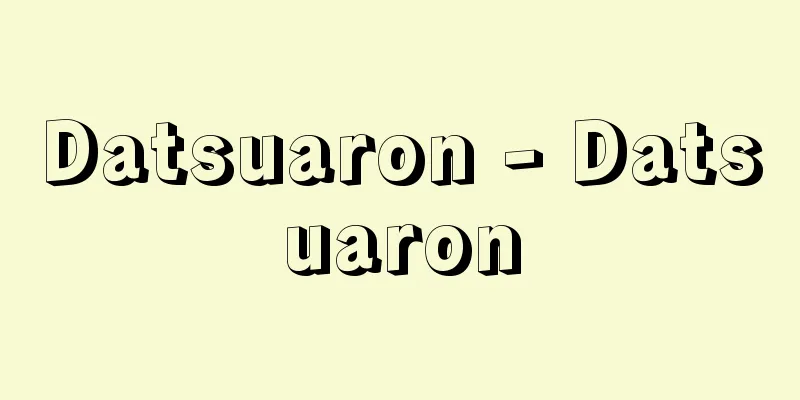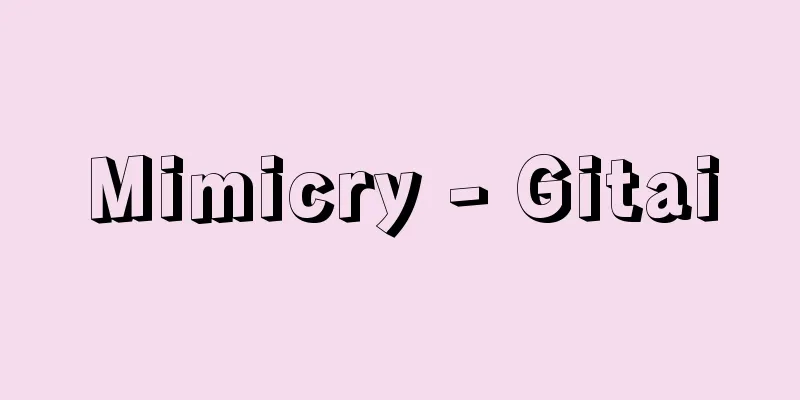Role - Yakuwari (English spelling) role

|
A concept corresponding to status. It refers to the behavioral patterns that are socially expected and required to behave and perform in a manner appropriate to the status that an individual occupies relative to others in social relations. For example, people who hold the social status of husband and wife are expected to behave in a manner appropriate to the status of a husband and a wife, respectively, and these are called the husband's role and the wife's role. There are roles that are assigned to oneself at birth regardless of one's will or ability, such as roles associated with gender or age (innate or assigned roles), roles that are chosen through one's ability and effort, such as occupational roles (achieved roles), and active-passive roles that individuals actively adopt or passively are assigned as a result of a particular interaction process, depending on the characteristics of the situation. Every individual who lives as a member of a society or group is placed in various positions within the complex web of social relations that is spread throughout that society, and is a status-role person who takes on roles corresponding to those positions. Society and groups, as an integration of such social relations between members, exist as status-role systems. [Mori Hiroshi] Role expectations and role acquisitionA society or group as a status-role system can smoothly advance social processes, provide dynamic equilibrium to social relationships, and survive with a certain order by having its members fulfill roles that correspond to the status assigned to them. Therefore, it expects and demands that its members conform to and adhere to typical behaviors that occupants of a certain status should perform in various social situations and interaction scenes. The content and binding force of these role expectations depend on what roles and role expectations the society or group places importance on, and are diverse and changeable in correlation with the value-norm system and sanctions mechanism of the society of the times. However, deviations from or departures from role expectations disrupt the social process and upset the order, so social sanctions are always imposed in various forms, more or less. On the other hand, as a member of society, an individual must take on a role appropriate to his or her status in order to adapt to various social situations and interact well with other members. This role taking involves a series of processes: (1) role perception, which is the content and nature of the role expectations for one's status; (2) role evaluation or role examination, which is to determine which aspects of the expected role are important; (3) role involvement, which is to determine the extent to which one should be involved in this role; (4) concrete action in the interaction situation as role performance or role enactment; and (5) modification or readjustment of one's role acquisition based on the reaction of others to this role behavior, i.e., sanctions. In this process, individuals learn and acquire the means to express themselves proactively in role behavior. [Mori Hiroshi] Role groups and role sequencesA role does not correspond to only one position, but it is a role set that is a combination of related roles. For example, the position of a medical student includes not only the role of a student in relation to teachers, but also a set of various roles corresponding to relationships with other students, doctors, medical technicians, nurses, patients, social welfare workers, etc., and at times and in situations, some roles in this role set come to the fore and others recede into the background (manifest roles and latent roles). Furthermore, roles are stylized as a role sequence that corresponds to the successive statuses that individuals occupy over time, such as medical student → research student → assistant → hospital physician → independent private practice physician. Therefore, while performing their current roles, individuals simultaneously engage in anticipatory role taking with an eye to the future, gradually undergoing role transformation and adapting to new statuses without major obstacles. Although individuals as members of society are role persons, they are by no means puppet-like beings who move in accordance with role expectations; rather, they play roles independently in accordance with their own desires, ideals, and individuality. Furthermore, role expectations and role regulations are not always clearly defined; rather, they are usually ambiguous and vague. Role relationships in the social structure are often inconsistent and sometimes even mutually contradictory. As a result, pathological phenomena such as role disharmony, role contradiction, role tension, and role conflict always occur to a greater or lesser extent, and how to deal with and resolve these becomes a major challenge for both individuals and society. [Mori Hiroshi] Role TheorySince roles are a mediating factor connecting the individual and society, various fields such as sociology, cultural anthropology, and social psychology, which seek to elucidate the relationship between society and the individual, have developed various role theories with the concept of role at their core. These role theories can be broadly divided into two types. One type is one that attempts to understand the individual from society and consider roles from the perspective of the formation, continuity, and change of social structure and order. This type is generally seen in sociology and cultural anthropology, and is typified by the role theories of Linton, Parsons, and Siegfried Frederick Stephen Nadel (1903-56). The other is an approach that looks at society and groups from the perspective of the individual, focusing on how individuals proactively play roles under various social conditions, participate in society while expressing themselves, and form and change order, and this position has been taken by many social psychology researchers, including G. H. Mead, who pioneered role theory. However, in recent years, there have been active attempts by researchers such as Merton and Dahrendorf to integrate these two approaches and build a role theory that grasps society-individual relationships holistically and dynamically, and work is being carried out to empirically formulate and verify role theory, which is producing steady results. [Mori Hiroshi] Homo Sociologicus: Roles and Freedom by R. Dahrendorf, translated by Kazuyuki Hashimoto (1973, Minerva Shobo) ▽ The Theory of Social Structure: The Development of Role Theory by S.F. Nadel, translated by Yoshio Saito (1978, Koseisha Koseisha) ▽ Social Systems Theory by T. Parsons, translated by Tsutomu Sato (1974, Aoki Shoten) ▽ Social Theory and Functional Analysis by R.K. Merton, translated by Togo Mori et al. (1969, Aoki Shoten) ▽ Mind, Ego, and Society by G.H. Mead, translated by Michio Inaba et al. (1973, Aoki Shoten) ▽ Culture and Social Roles by Yoshio Mori (1972, Koseisha Koseisha) ▽ An Introduction to Cultural Anthropology by R. Linton, translated by Ikutaro Shimizu et al. (1952, Tokyo Sogensha) [References] | | |Source: Shogakukan Encyclopedia Nipponica About Encyclopedia Nipponica Information | Legend |
|
地位に対応する概念。社会関係において個人が他者に対して占める地位に応じて、その地位にふさわしくふるまい、遂行するように社会的に期待され要求される行動様式をいう。たとえば夫‐妻という社会関係的地位にたつ人たちには、それぞれ、夫は夫として夫らしく、妻は妻として妻らしく行うように期待されている行動内容や行動の仕方があり、それが夫の役割、妻の役割といわれるものである。 役割には、性や年齢などに伴う役割のように、個人の意思や能力にかかわりなく生まれながらにして課せられる役割(生得的または賦与される役割ascribed role)や、職業上の役割のように個人の能力や努力によって選び取られる役割(獲得される役割achieved role)、また特定の相互行為過程で、状況の特性に応じて、その成り行きとして、個人が積極的に採用したり、受動的に割り当てられたりする能動的・受動的役割active-passive roleなどがあるが、社会や集団内の一成員として生きるすべての個人は、そこに張り巡らされた複合的な社会関係の網の目のなかでさまざまな地位に置かれ、それに準じた役割を担う地位‐役割人であり、そのような成員間の社会的諸関係の統合体としての社会や集団は、地位‐役割体系として成り立っている。 [森 博] 役割期待と役割取得地位‐役割体系としての社会や集団は、成員たちに配分された地位に即応した役割を遂行させることによって、社会過程を円滑に進行させ、社会的諸関係に動的均衡を与え、一定の秩序を保って存続していくことができるものであるから、その成員たちに対して、さまざまな社会状況や相互行為場面において一定の地位の占有者が果たすべき典型的な行動を様式化し、これを順守し実行するように期待し要求する。この役割期待role expectationの内容や拘束力は、その社会や集団がいかなる役割と役割期待とを重視するかということにかかわり、時代における社会の価値‐規範体系およびサンクション機構と相関し、多様であるとともに変化するものである。しかし役割期待からの離反や逸脱は社会過程を乱し秩序を動揺させることになるので、これに対してはつねにさまざまな形で多かれ少なかれ社会的制裁が加えられる。 他方、社会成員としての個人は、もろもろの社会的場面に適応しつつ他成員とうまく相互行為していくために、自分の地位にふさわしい役割をとらなければならない。この役割取得role takingは、(1)自分の地位に対する役割期待の内容や性質がどのようなものであるかという役割認知role perceptionに始まり、(2)期待される役割のどの点が重要であるかを判別する役割評価role evaluationや役割吟味role examinationをし、(3)この役割に自分をどの程度どうかかわらせるかという役割関与role involvementの勘案を経て、(4)相互行為場面で役割遂行role performanceまたは役割実現role enactmentとして具体的に行動に移し、(5)この役割行動に対する他者の反応=サンクションを踏まえて自分の役割習得に修正や再調整を加えるという一連の過程をたどる。この過程で個人は役割行動において自己を主体的に表現するすべを学び、身につける。 [森 博] 役割群と役割系列役割は、一つの地位に一つの役割だけが対応するといったものでなく、関連する諸役割がセットとして組み合わされた役割群role setをなしている。たとえば医学部学生という一つの地位には、教師たちとの関係における学生という役割だけでなく、他の学生、医師、医療技師、看護婦、患者、社会福祉事業家などとの関係に応じたさまざまな役割が一組となって含まれているのであって、時と場合によりこの役割群中のいくつかの役割が前面に現れ、他の諸役割が背後に退くのである(顕在的役割manifest roleと潜在的役割latent role)。 また役割は、医学部学生→研究生→助手→病院付き医師→独立の開業医といったように個人が時間の経過につれて順次継起的に占めていく地位連鎖に見合った役割系列role sequenceとして様式化されているので、個人は現在の役割群を遂行しつつ同時に将来を見越した役割取得anticipatory role takingを行い、漸進的に役割変換を遂げ、大きな障害なしに新しい地位に適応していく。 社会成員としての個人は役割人であるが、役割期待どおりに動く操り人形的な存在ではけっしてなく、自分の欲求や理念や個性にあわせて主体的に役割を演じるものであり、また役割期待や役割規定はかならずしも一義的に明確でなく、むしろ多義的であいまいなのが通例で、社会構造における役割関連もしばしば首尾一貫しておらず、ときには相互矛盾することもあるので、役割不調和role disharmony、役割矛盾role contradiction、役割緊張role tension、役割葛藤(かっとう)role conflictなどの病理的現象は多かれ少なかれつねに生じ、これをどのように処理し解消するかが個人にとっても社会にとっても大きな課題となる。 [森 博] 役割理論役割は個人と社会とを結ぶ媒介項をなすものなので、社会‐個人関係を解明しようとする社会学、文化人類学、社会心理学などの諸部門では役割概念を中軸に据えてさまざまな役割理論が展開されている。この役割理論には大別すると二つのタイプがある。その一つは社会から個人をとらえるという方向で社会の構造や秩序の形成・存続・変動の観点から役割を考察しようとするもので、一般に社会学や文化人類学に多くみられ、リントン、パーソンズ、ネーデルSiegfried Frederick Stephen Nadel(1903―56)などの役割理論がこれを代表する。 もう一つは個人の側から社会や集団をとらえる方向にたち、社会的諸条件のもとで諸個人がどのように役割を主体的に演じ、自己を表現しつつ社会参加し、秩序を形成し変えていくかに焦点を据えたもので、役割理論に先鞭(せんべん)をつけたG・H・ミードをはじめ社会心理学的研究者たちが多くこの立場をとる。しかし最近では、この二つの方向を統合して社会‐個人関係を全体的かつ動的にとらえる役割理論の構築を目ざしたマートンやダーレンドルフなどの試みが活発に展開され、役割理論の経験的命題化と検証化の作業が進められて、着実な成果をあげつつある。 [森 博] 『R・ダーレンドルフ著、橋本和幸訳『ホモ・ソシオロジクス――役割と自由』(1973・ミネルヴァ書房)』▽『S・F・ネーデル著、斎藤吉雄訳『社会構造の理論――役割理論の展開』(1978・恒星社厚生閣)』▽『T・パーソンズ著、佐藤勉訳『社会体系論』(1974・青木書店)』▽『R・K・マートン著、森東吾他訳『社会理論と機能分析』(1969・青木書店)』▽『G・H・ミード著、稲葉三千男他訳『精神・自我・社会』(1973・青木書店)』▽『森好夫著『文化と社会的役割』(1972・恒星社厚生閣)』▽『R・リントン著、清水幾太郎他訳『文化人類学入門』(1952・東京創元社)』 [参照項目] | | |出典 小学館 日本大百科全書(ニッポニカ)日本大百科全書(ニッポニカ)について 情報 | 凡例 |
Recommend
Norfolk rotation
…Instead of the open land system and the rural co...
Private branch exchange
…Telephone exchanges for connection within a busi...
Kim Dong-in
Korean novelist. While studying in Tokyo, he publi...
fancy geranium
...In horticulture, the term pelargonium refers t...
Ishizuka Toyokaishi
Year of death: 14 January 1862 (15 December 1861) ...
Brunfelsia americana (English spelling)
…[Kazuo Furusato]. … *Some of the terminology tha...
Citrus leafhopper - Citrus leafhopper
…The Japanese staghorn leafhopper attacks grape l...
Rhynchospora brownii (English name) Rhynchospora brownii
…[Tetsuo Koyama]. … *Some of the terminology that...
Mound - Tsuka
It refers to a pile of earth, but there are also ...
Boehmeria sylvestrii (English spelling) Boehmeria sylvestrii
…[Tetsuichi Yahara]. … *Some of the terminology t...
Ozaki Yahee
...A kyoka poet from the mid-Edo period. His real...
《Dictionary of the Devil》
...His cynicism is displayed in The Cynic's G...
Corpse - Better than
Shi is "katashiro (formal substitute)"....
Cold Belly - Hiebara
This refers to abdominal symptoms caused by insuff...
Symptomatic psychosis
This refers to mental disorders that accompany phy...









